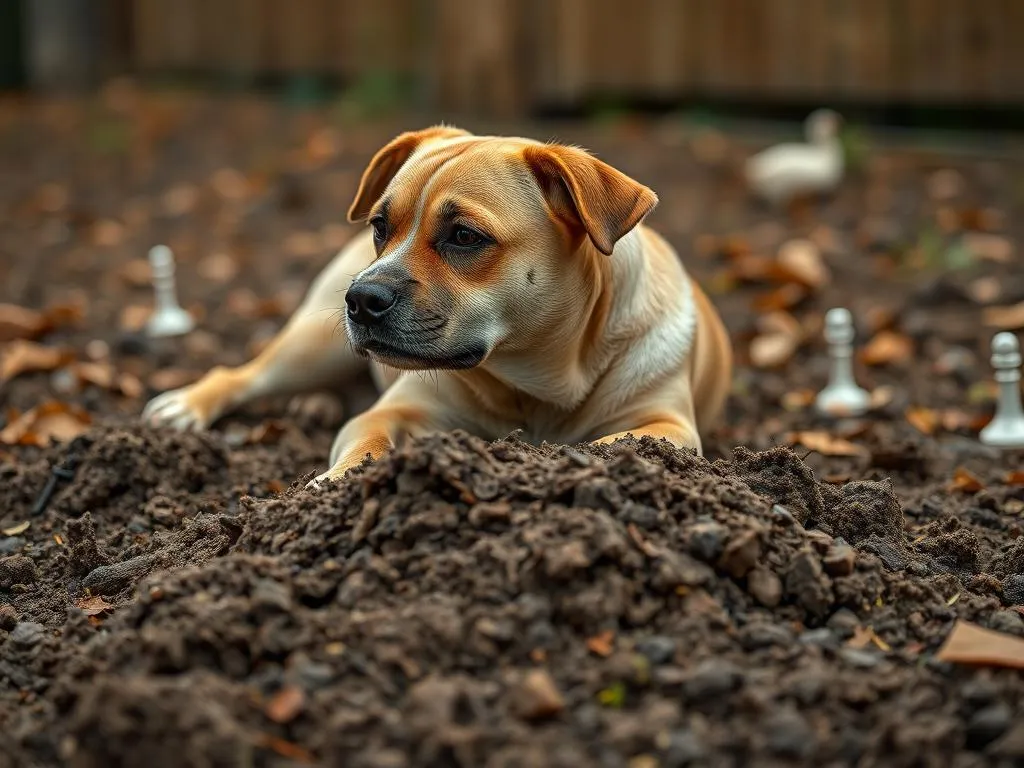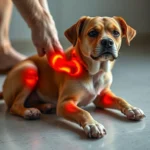
Monitoring your dog’s health can often be as simple as observing their poop. Abnormal dog poop can serve as an important indicator of your dog’s overall health, revealing potential issues that may require further attention.
Understanding Normal vs. Abnormal Dog Poop
Characteristics of Normal Dog Poop
Understanding what constitutes normal dog poop is the first step in identifying abnormalities.
- Color: Healthy dog poop is typically a shade of brown, influenced by the dog’s diet and the presence of bile.
- Consistency: It should be firm but not hard, with a shape resembling a log.
- Frequency and Volume: Generally, a healthy dog will poop one to three times a day, depending on their diet, age, and activity level.
Common Types of Abnormal Dog Poop
When observing your dog’s stool, be on the lookout for signs of abnormal dog poop, which can take various forms:
- Diarrhea: Watery and loose stools can indicate digestive upset or infection.
- Constipation: Hard, dry stools that are difficult to pass may signal dehydration or dietary issues.
- Mucus or Blood Presence: The appearance of mucus or blood in the stool is concerning and requires immediate attention.
- Unusual Colors: Colors outside the normal brown spectrum, such as yellow, green, or black, can indicate different health issues.
Causes of Abnormal Dog Poop
Understanding the potential causes of abnormal dog poop is essential for effective dog care.
Dietary Factors
Diet plays a significant role in your dog’s digestive health.
- Food Allergies and Intolerances: Some dogs may react negatively to certain ingredients, leading to gastrointestinal distress.
- Dietary Changes: Sudden changes in diet can cause digestive upset. Transitioning foods gradually is crucial.
- Ingestion of Inappropriate Food: Dogs often consume human food or garbage, which can disrupt their digestive systems.
Health Conditions
Several health issues can lead to abnormal dog poop.
- Parasites: Worms and protozoa can cause diarrhea and other gastrointestinal problems.
- Infections: Bacterial and viral infections may lead to gastrointestinal upset, resulting in abnormal poop.
- Gastrointestinal Diseases: Conditions like inflammatory bowel disease (IBD) or colitis can cause chronic issues.
- Organ Failures: Problems with the liver or kidneys can manifest as changes in stool.
Environmental Factors
External factors can also affect your dog’s digestion.
- Stress or Anxiety: Changes in environment or routine, such as a new pet or moving, can lead to digestive upset.
- Lifestyle Changes: Increased activity or lack thereof can influence your dog’s bowel movements.
Identifying Symptoms Associated with Abnormal Dog Poop
In addition to observing the stool itself, look for associated symptoms that may indicate a more serious issue.
Behavioral Changes
Changes in your dog’s behavior can be significant.
- Changes in Appetite: A sudden increase or decrease in appetite may signal health problems.
- Lethargy: If your dog is less active than usual, it may be a sign of underlying health issues.
- Signs of Pain or Discomfort: Whining, pacing, or reluctance to move can indicate distress.
Physical Symptoms
Physical signs can also help you assess your dog’s health.
- Vomiting: Frequent vomiting alongside abnormal poop is a concerning sign.
- Weight Loss or Gain: Unexplained changes in weight should not be ignored.
- Dehydration Signs: Dry gums, excessive thirst, or tiredness can indicate dehydration.
When to Seek Veterinary Care
Knowing when to seek veterinary care is crucial for your dog’s health.
Immediate Red Flags
Certain signs necessitate immediate veterinary attention.
- Presence of Blood or Black Stool: Blood in the stool or black, tarry stools can indicate serious health issues.
- Persistent Diarrhea or Vomiting: If your dog has diarrhea or vomiting lasting more than a day, consult your vet.
- Severe Lethargy or Unresponsiveness: If your dog is unusually lethargic, it may require urgent care.
Situations Requiring Observation
Not all changes require immediate veterinary intervention, but close monitoring is essential.
- Mild Diarrhea Without Other Symptoms: If the diarrhea is mild and your dog is otherwise healthy, observe closely.
- Changes After a Food Switch: If your dog experiences mild upset after a dietary change, monitor for improvement.
- Temporary Stress-Related Changes: Stress from environmental changes may resolve with time.
Home Care for Mild Cases of Abnormal Dog Poop
If your dog’s poop is only mildly abnormal, there are steps you can take at home.
Dietary Adjustments
Making temporary dietary changes can help restore your dog’s digestive health.
- Temporary Bland Diet: Feeding your dog boiled chicken and rice can help settle their stomach.
- Gradual Reintroduction of Regular Food: Once your dog’s condition improves, reintroduce regular food slowly to avoid further upset.
Hydration and Electrolytes
Maintaining hydration is critical, especially in cases of diarrhea.
- Importance of Keeping the Dog Hydrated: Ensure your dog has access to fresh water at all times.
- Use of Electrolyte Solutions: If your dog is dehydrated, consider using an electrolyte solution designed for pets.
Monitoring and Record Keeping
Keeping track of your dog’s health can aid in future veterinary visits.
- Keeping a Poop Journal: Documenting the characteristics of your dog’s poop can help identify patterns or triggers.
- Noting Changes in Behavior and Poop Characteristics: This information can be invaluable for your veterinarian.
Preventative Measures for Maintaining Healthy Digestion
Preventative care is essential for maintaining your dog’s digestive health.
Balanced Diet
Feeding your dog a well-balanced diet is fundamental.
- Importance of High-Quality Dog Food: Invest in high-quality dog food that meets your pet’s nutritional needs.
- Avoiding Table Scraps and Harmful Foods: Human foods can disrupt your dog’s digestive balance and lead to health issues.
Regular Vet Check-ups
Routine veterinary visits can help catch potential health problems early.
- Importance of Routine Health Screenings: Regular check-ups can assist in early detection of gastrointestinal issues.
Proper Hygiene and Environment
Maintaining a clean living environment contributes to overall health.
- Keeping Living Areas Clean: Regular cleaning helps prevent the spread of parasites and bacteria.
- Regular Exercise and Mental Stimulation: Physical activity and mental engagement can support digestive health.
Conclusion
Monitoring your dog’s poop is a vital aspect of their health care. By understanding the signs of abnormal dog poop and its implications, you can take proactive steps to ensure your dog remains happy and healthy. If you notice any concerning changes, don’t hesitate to consult with your veterinarian to address potential issues promptly. Remember, a healthy dog often has healthy poop, and your vigilance can make all the difference in their well-being.









